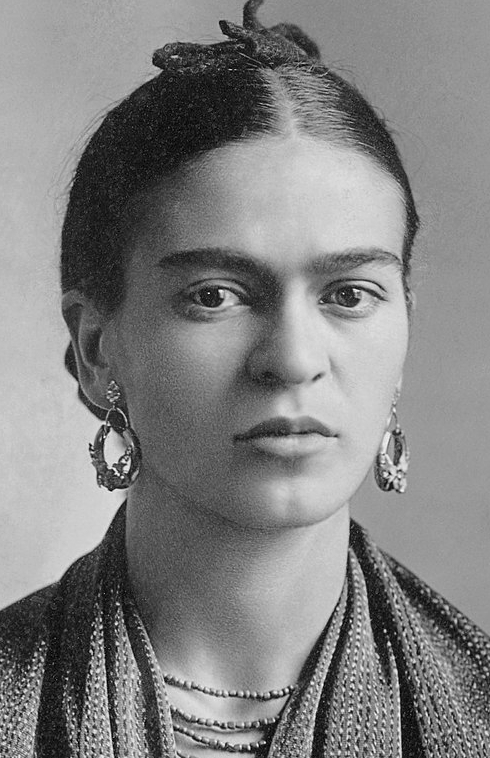On this date in 1907, Magdalena Carmen Frida Kahlo y Calderón was born in Mexico, the daughter of an atheist German immigrant father and a Mexican/indigenous Catholic mother. Her painting career was born of pain and boredom during a lengthy convalescence following impalement in a horrific streetcar accident. The 18-year-old suffered a broken spine and pelvis, 11 leg fractures and a crushed foot but learned to walk again. She famously married atheist painter Diego Rivera in 1929 but divorced him for infidelity in 1940. They remarried the next year.
Rivera encouraged her to adopt her trademark, colorful Mexican garb. The strikingly beautiful woman also boasted a trademark “unibrow,” which she meticulously documented in her many self-portraits. Kahlo sometimes wove blasphemous themes into her surreal paintings and depicted herself as a secular, medical martyr. Unhappy with U.S. values during an extended stay there in the 1930s, she painted a montage of images that included a dollar sign wrapped across the cross on a church.
Kahlo once referred to Rivera as the second major accident of her life. The tempestuous radicals were always controversial in their private and public lives. She was rumored to have had a love affair with the exiled Leon Trotsky and painted an adulatory picture in 1954 called “Stalin and I.” She was bisexual and openly explored relationships with women, including Dolores del Rio, Paulette Goddard, Josephine Baker, Georgia O’Keeffe and others. Her status in the LGBTQIA+ community is iconic.
The year before her death, her right leg had to be amputated below the knee due to gangrene, which had started in her toes. She died at 47, probably at her own hand. The New York Times obituary reported that she was believed to be the first woman to sell a painting to the Louvre. Actress Salma Hayek fought hard to bring to life the movie “Frida” (2002), in which she portrayed the artist and was co-producer. (D. 1954)
Public domain photo: Kahlo at age 25 photographed by her father Guillermo.


